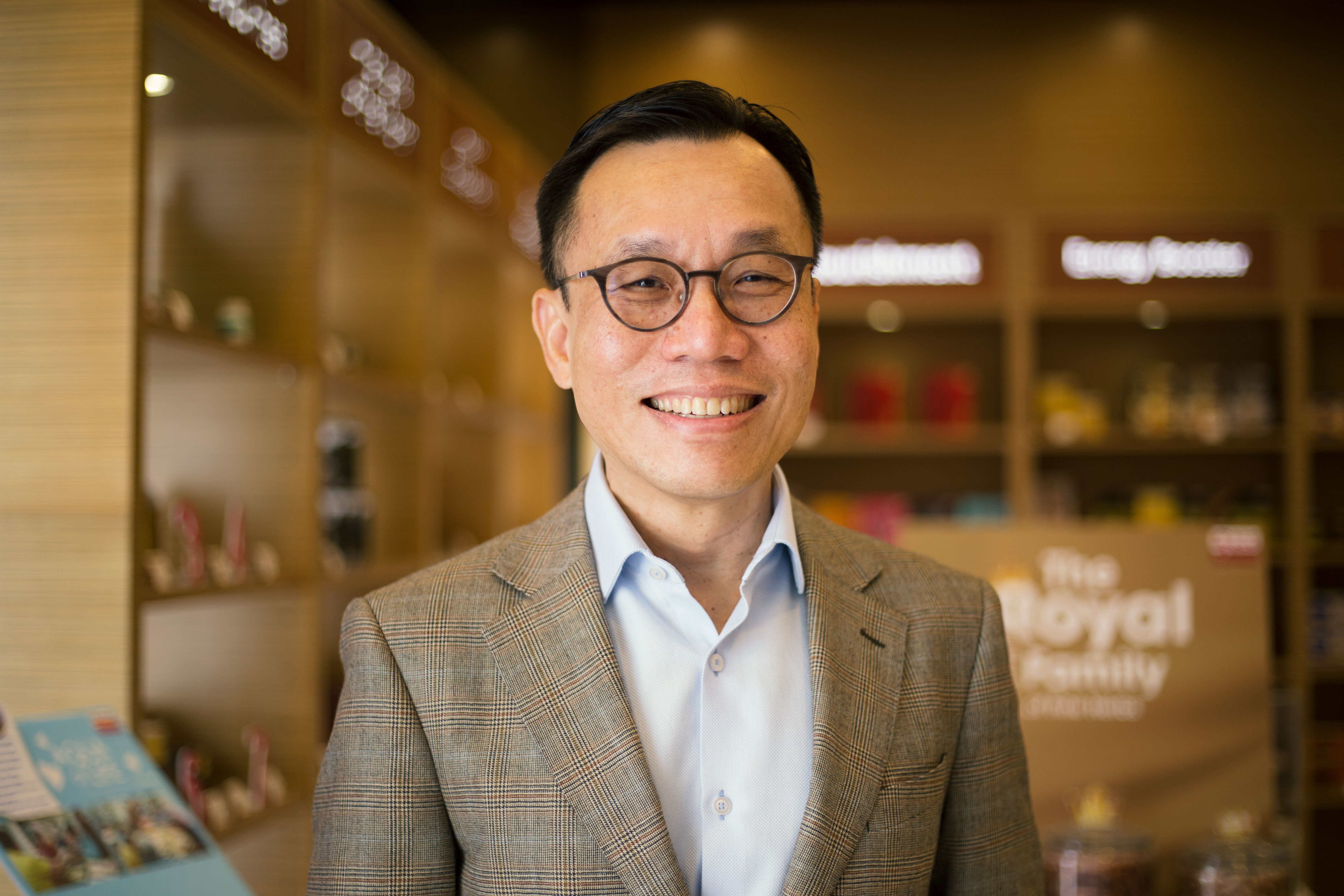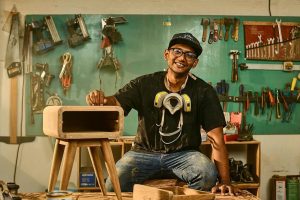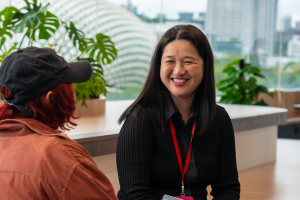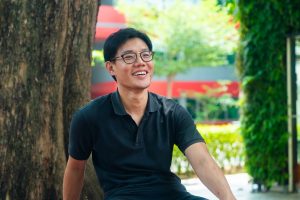One of my first questions to Mr Aaron Boey, CEO of Eu Yan Sang, is if Traditional Chinese Medicine (TCM) is a legit thing.
Without missing a beat, Mr Boey tells me that TCM is a philosophy, not a treatment plan.
“TCM emphasises health maintenance; it is prophylactic as opposed to just therapeutic,” Mr Boey explains. In other words, Western medicine aims to cure you when you are sick, but TCM wants to keep you healthy so you don’t fall sick in the first place.
Contrary to popular belief, TCM doesn’t do this by prescribing you a daily regimen of mystery herbs and substances. Instead, a physician will profile your body; thereafter helping you understand your body constitution and how the environment and your lifestyle choices contribute to your state of wellness.
In doing so, it inverts the doctor-patient relationship by emphasising individual action over medical intervention. Therefore, TCM “reminds and empowers you to be responsible for your own body,” Mr Boey says.
This reason, I think, is at the core of why many of us young people have an aversion to TCM. It’s not so much about our strict belief in the principles of Western medicine but the fact that TCM demands we participate actively in the maintenance of our health, through an extended period of time—through our whole lives, in fact.
As opposed to the convenient daily pill-popping that much of Western medicine is characterised by, in the world of TCM, we might, according to our particular bodily constitution, have to avoid cold water or spicy food… and which millennial can say ‘no’ to bubble tea and ma la hotpot?
Thus, in our age of instant gratifications and sensory pleasures, TCM can seem like a chore that curtails our freedom. It’s just easier to blame your sore throat on some extraneous cause— even though the only person who can bring balance to your bodily constitution is you.
“That’s what I’ll probably get into,” Mr Boey says, “if I want to convince someone who’s uninitiated to TCM. The feeling of being empowered … with the knowledge that you can take charge of your own health and well-being.”
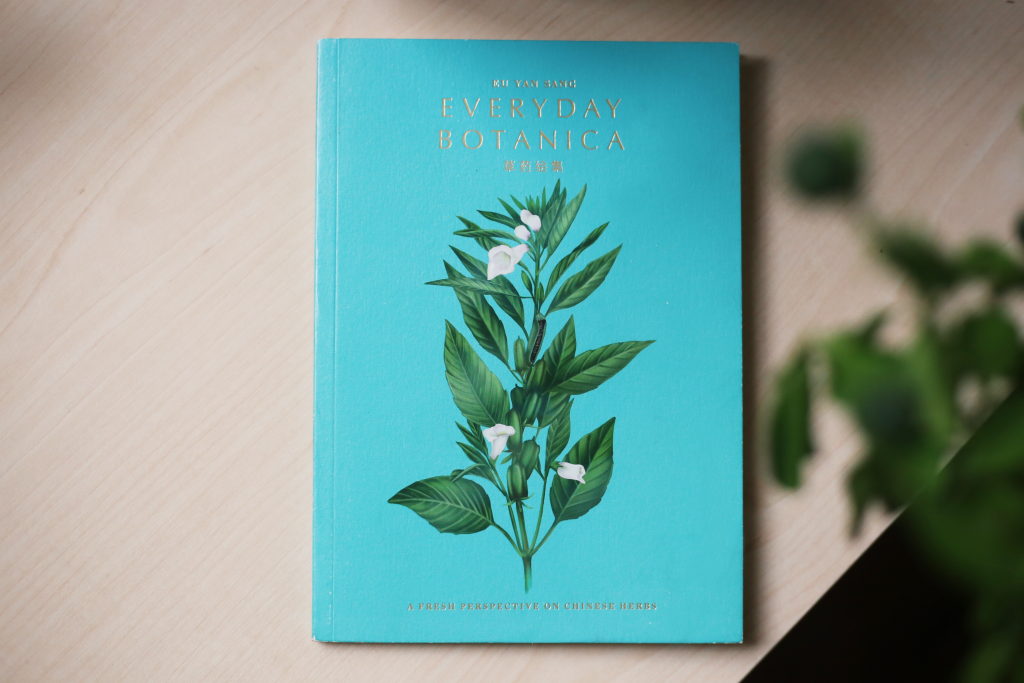
Mr Boey is not speaking as someone who grew up believing that TCM is the de facto panacea to all ailments.
In fact, he does not even have a background in TCM, which is surprising, considering he is the CEO of a multi-million-dollar TCM company. Prior to this gig, he worked in Levi Strauss (clothing), Philips (electronics), and Heineken (delicious drink).
More strikingly, Mr Boey’s surname is, well, “Boey”. It is not “Eu”, a surname which marks all of Eu Yan Sang’s past leaders in its 140 years of existence. To put it plainly, Mr Boey is the first CEO of Eu Yan Sang—which was founded by Eu Kong in 1879—not to hail from the Eu family.
Such a scenario might seem intimidating: a non-family member who does not have much experience in the TCM industry suddenly propelled into the driver’s seat of this 140-year-old heritage brand.
Mr Boey is not fazed by this challenge, however, because he is more than ready to tackle it. After all, he had already served as Eu Yan Sang’s Group Chief Operating Officer before taking on this position. Furthermore, he explains that while the Eu family undeniably built the company into the TCM giant that it is today, there are “real [TCM] experts” and “many loyal, committed, and very competent employees” upon whose backs Eu Yan Sang’s success rests as well.
Prior to Mr Boey’s appointment as CEO, the company was also “publicly listed … 30% of the shares of this company were owned by institutions, owned by retail investors,” so it operated much like a public company in its corporate responsibility and finances.
The fresh perspective of an outsider, in combination with the business acumen of someone who has been managing multinational companies with a long heritage for decades, makes Mr Boey just the right person to lead Eu Yan Sang into its next 140 years.
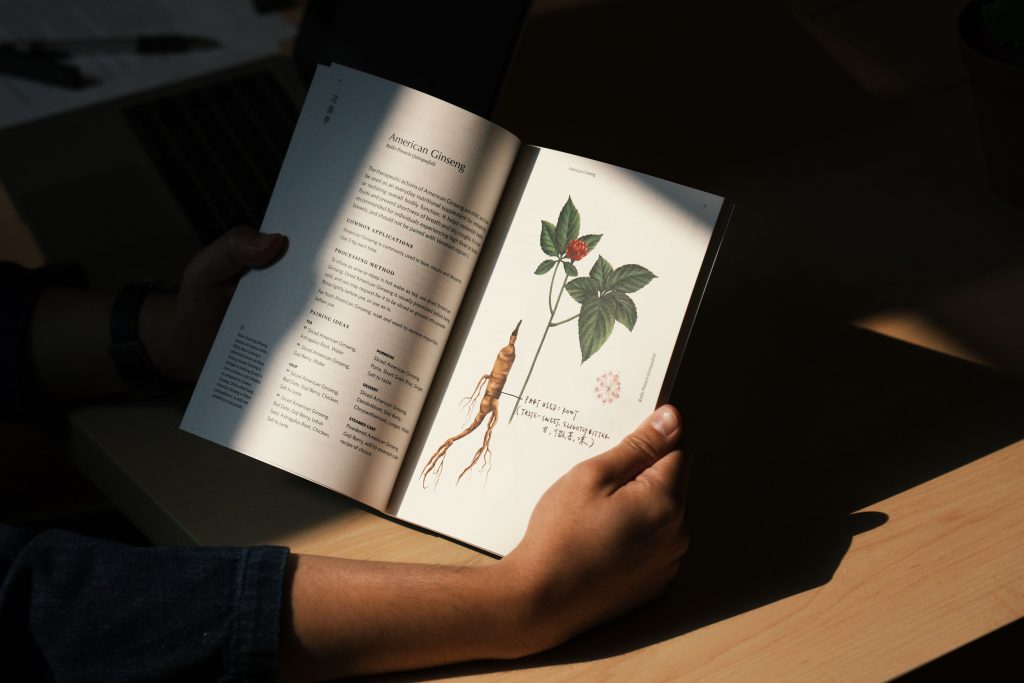
We are the generation that knows everything from the age of our soulmate based on what salad we make to a detailed breakdown of our genetic ancestry. And we obsess over our body: how it looks, what we clad it in, whether it can perform the punishing pulses at a Barre class. But our relationship with our body is superficial, compared with our almost neurotic need to find out every aspect of our personality.
Mr Boey thinks so too: “A lot of young people spend a lot of time trying to understand themselves emotionally, trying to understand themselves mentally. They take online tests and all sorts of quizzes or stuff like that. But we don’t spend enough time trying to understand our bodies.”
This lack of self-knowledge is what TCM wants to remedy. Mr Boey himself altered his habits after he became aware, through TCM, of how they were taking “a huge toll on his body”.
“I used to drive through my schedules … I would get maybe 2 or 3 hours of sleep a day whenever I did intercontinental travel … Today I’m much more aware and I’m making sounder choices.”
“And it’s the small choices you make every day that add up.”
For instance, Mr Boey now knows that eating hotpot in a cold country—a favourite holiday activity of Singaporeans—causes your body to get very heaty. And if you really cannot resist the temptation of steamboat, a good way to combat its effects would be to balance it with a combination of dendrobium, a type of orchid, and American ginseng.
Mr Boey’s own experience made him realise that young people, especially, can benefit from TCM’s emphasis on nurturing self-knowledge. Thus, he wants to modernise Eu Yan Sang and expand its reach to ever younger consumers.
To this end, Mr Boey is aware that it is important to attract more millennials to join Eu Yan Sang so that “the consumer will have a voice at the table”. One way Eu Yan Sang is achieving this goal is through its scholarship programme, which funds students interested in pursuing undergraduate studies in biomedical sciences and Chinese medicine.
For me, however, the more exciting developments in Eu Yan Sang are happening on the consumer-product front.


Eu Yan Sang’s drive to demystify and democratise TCM by extending it out of the realm of medicine is kicking into high gear.
Nowhere is this impulse clearer than in Eu Yan Sang’s recent 140th-anniversary celebration held at the theatre-restaurant Madame Fan. A commemoration of 140 years might sound stuffy and historical, but the event was far from it.
There was cheng tng sorbet made by Creamier, Dang Gui Ginseng Pale Ale by Pink Blossoms Brewing, a local brewery, Schisandra cocktail by Junior the Pocket Bar, and even a customised scent, Hush, concocted by Scent by Six using key TCM ingredients like Tangerine Peel, Ginseng, Rose and Sandalwood.
Ice cream, beer, liquor, and perfume—who says the “traditional” part of TCM can’t coexist with our modern lifestyles today?
Indeed, this is one of the key messages that Mr Boey wants to convey: that TCM is, in his words, “modern, safe, and it meets your lifestyle needs, while empowering you to take charge of your own health”.
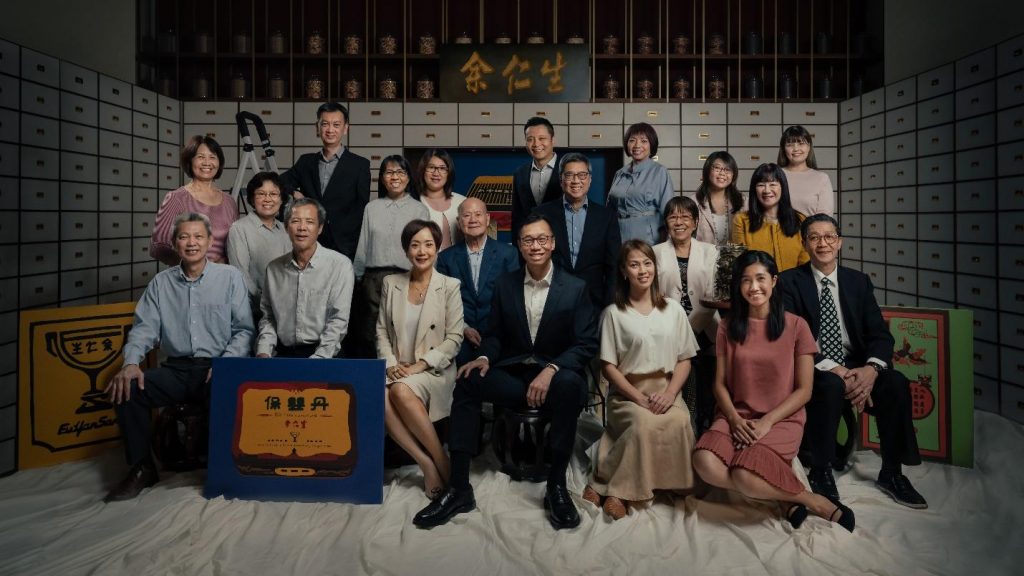
Even without these modern innovations, various aspects of TCM are already gaining currency among the younger generation worldwide.
Superstar swimmer Michael Phelps was famously spotted with cupping marks at the 2016 Rio Olympics, while closer to home, members of the Singapore Women’s Hockey Team rely on TCM medication and acupuncture to treat their injuries sustained during training.
In fact, TCM’s efficacy and safety are so well established that even animals can benefit from its principles.
“When I said we have deep sector expertise, it extends beyond human beings … the zoo used acupuncture to treat Ah Meng, and we’ve supported the zoo using our herbal medicine to treat the animals,” Mr Boey reveals, to my surprise.
Mr Boey is not mentioning Ah Meng to indicate that Eu Yan Sang is expanding into animal TCM. Even as the company modernises, Eu Yan Sang still focuses on their core business of, as Mr Boey puts it, helping people “to live their best quality of life through natural, accessible wellness solutions based on our deep TCM wisdom”.
Instead, he is using this anecdote to explain that animal acupuncture has had precedents recorded in millennia-old TCM texts.
This made him realise that “TCM is based on sound theories—and anything which is theory-based can find different applications outside of the mainstream use.”
Encapsulated in this anecdote are TCM’s historical track record and near-universal applicability—qualities which make Mr Boey confident that it, and Eu Yan Sang, will remain relevant to people beyond the next 140 years.
If you’d like to have a chat over mojito with a sprinkling of gan cao, reach out to us at community@ricemedia.co.

